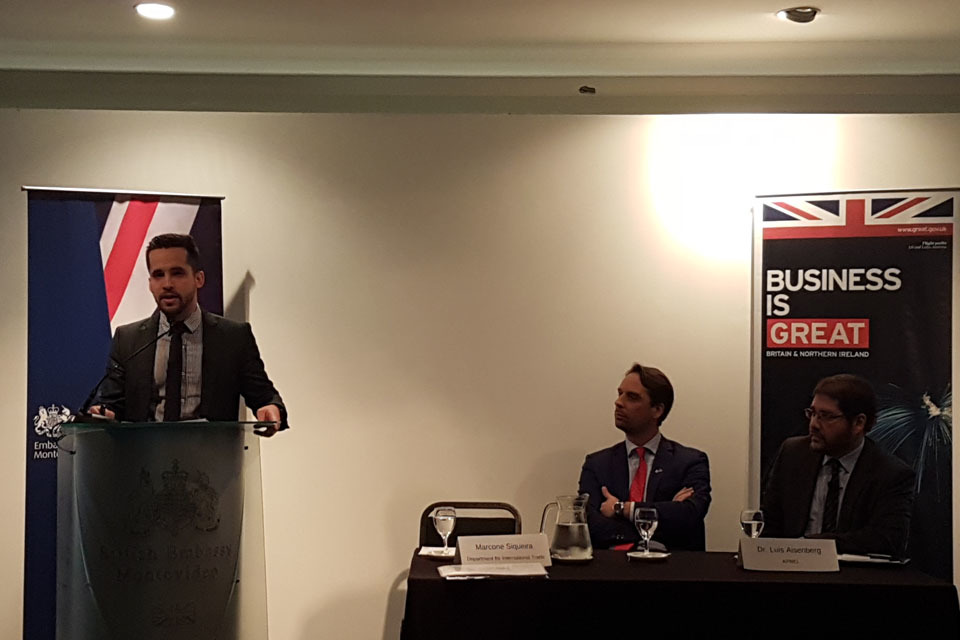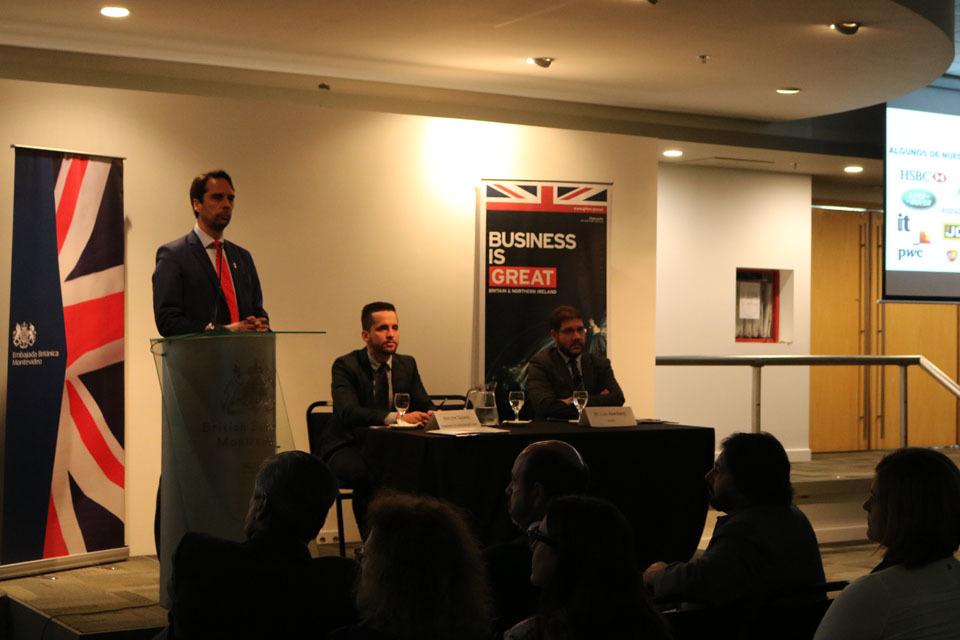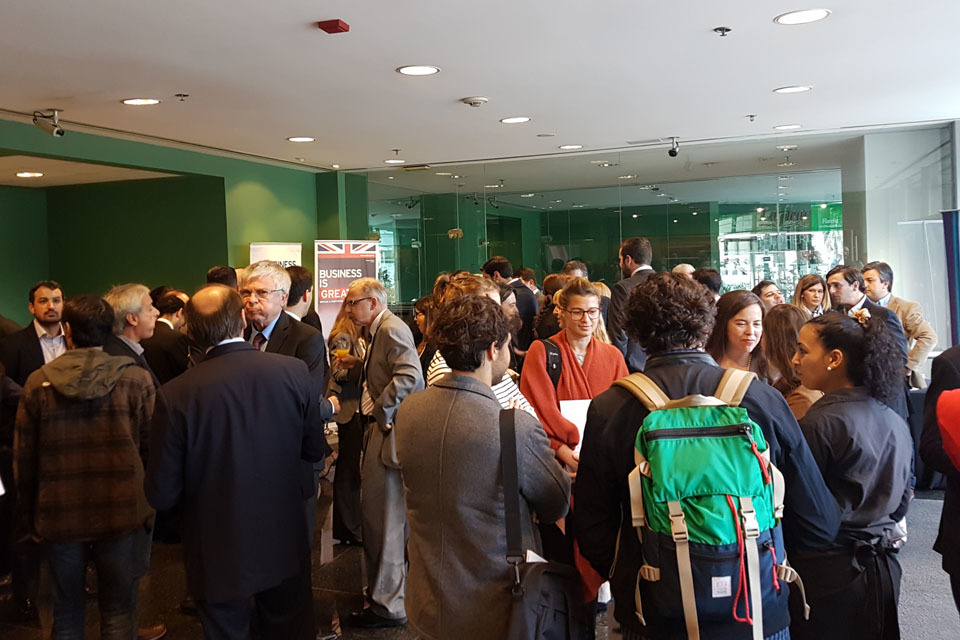Benefits of the UK-Uruguay Double Taxation Agreement
The Embassy organised a conference on 9 May to explain the opportunities and benefits of the Double Taxation Agreement.

HMA Ian Duddy
About 100 members of the business community, interested in developing or strengthening commercial ties with the UK, attended the event at the World Trade Center auditorium.
The Double Taxation Agreement (DTA) signed in 2016, will further strengthen the UK and Uruguay’s commercial relationship, which goes back 200 years. As Her Majesty’s Ambassador Ian Duddy said in his opening remarks, the first free trade agreement that the Banda Oriental signed was with the UK, back in 1817.

Álvaro Inchauspe, General Manager of Uruguay XXI,
Álvaro Inchauspe, General Manager of Uruguay XXI, outlined the trade exchange between Uruguay and the UK. There are currently 90 British companies operating in Uruguay and a further 4 plan to enter the market soon. Inchauspe stated the great potential of the UK as a place to do business and announced that Uruguay XXI will be participating in two international events that will take place in London in the coming months: the FDI Summit and the Global Expansion Summit.

Ana Laura Ghislandi, Account Baker Tilly Uruguay
Accountant Ana Laura Ghislandi, from Baker Tilly Uruguay, detailed the treaty’s technical aspects. Ghislandi explained that the DTA, which came into force in January 2017, promotes increased bilateral trade through a range of tax benefits.

Marcone Siqueira, UK Department for International Trade
Marcone Siqueira, of the United Kingdom’s Department for International Trade, set out why the UK is one of the best places to set up a business.
Bringing the event to a close, Dr. Luis Aisenberg, Director of Tax & Legal at KPMG Uruguay, described Uruguay’s appeal as a destination for foreign investment, due to the tax benefits given to overseas companies. Aisenberg pointed out the value of the DTA not only as a tool to boost business opportunities between the two countries but also strengthen links between Uruguay and the United Kingdom.

Marcelo Mercant
The main objectives of the agreement are:
-
promote the international flow of investments and trade by reducing the tax burden
-
minimise taxes of a subject on the same type of income
-
provide assurances regarding the tax treatment of certain cross-border operations
-
create a level playing field for taxpayers from different countries
-
provide information exchange between tax administrations and prevent tax evasion

Coffee break
Presentations:
Álvaro Inchauspe – Ana Laura Ghislandi – Marcone Siqueira – Luis Aisenberg –